Turmeric
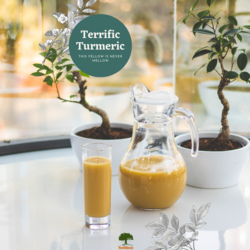 Turmeric is a spice that many people might have never heard of. It’s the pigment that gives mustard and curries their brilliant hues. Turmeric is a ginger-like plant that is native to Southeast Asia and is predominantly cultivated in India. Its underground stem, or rhizome, is utilized in cooking and traditional medicine. Turmeric has been an essential part of Ayurveda and other traditional Indian medical systems, as well as Eastern Asian medical systems like traditional Chinese medicine, for centuries. It was originally used in India to treat disorders of the skin, upper respiratory tract, joints, and digestive system. A wide range of ailments, including arthritis, digestive problems, respiratory infections, allergies, liver illness, depression, and more can be treated with turmeric. Curcumin is a key component of turmeric, and curcuminoids are usually credited with turmeric’s properties (curcumin and closely related substances). Turmeric’s yellow colour comes from curcumin. Supplements of turmeric are usually produced from the dried rhizome and contain a combination of curcuminoids. Numerous high-quality research proved turmeric to provide significant health advantages for both the body and the brain. Several of these advantages are brought about by the principal active component, which is curcumin. This article aims to give a detailed insight into the health benefits of turmeric and curcumin.
Turmeric is a spice that many people might have never heard of. It’s the pigment that gives mustard and curries their brilliant hues. Turmeric is a ginger-like plant that is native to Southeast Asia and is predominantly cultivated in India. Its underground stem, or rhizome, is utilized in cooking and traditional medicine. Turmeric has been an essential part of Ayurveda and other traditional Indian medical systems, as well as Eastern Asian medical systems like traditional Chinese medicine, for centuries. It was originally used in India to treat disorders of the skin, upper respiratory tract, joints, and digestive system. A wide range of ailments, including arthritis, digestive problems, respiratory infections, allergies, liver illness, depression, and more can be treated with turmeric. Curcumin is a key component of turmeric, and curcuminoids are usually credited with turmeric’s properties (curcumin and closely related substances). Turmeric’s yellow colour comes from curcumin. Supplements of turmeric are usually produced from the dried rhizome and contain a combination of curcuminoids. Numerous high-quality research proved turmeric to provide significant health advantages for both the body and the brain. Several of these advantages are brought about by the principal active component, which is curcumin. This article aims to give a detailed insight into the health benefits of turmeric and curcumin.
What are the health benefits of turmeric?
- Has therapeutic properties- The curcumin content in turmeric is about 3% by weight, which is not that high. It has been noticed that the majority of research on this herb use turmeric preparations that are mainly curcumin, with daily doses typically exceeding 1 gramme. To achieve these levels solely by the consumption of turmeric as a spice can be quite difficult. It’s for this reason that some people prefer to take supplements. The level of absorption of curcumin into the bloodstream is quite poor. To make curcumin more ready to absorb, its bioavailability (the rate at which your body absorbs a substance) must improve in order to reap its full benefits. Consuming it with black pepper is beneficial. Black pepper contains piperine, which is a natural substance that increases the absorption of curcumin by 2,000%. In reality, piperine is found in the greatest curcumin supplements, making them much more effective.
-
- Has anti-inflammatory properties- Inflammation is necessary because it helps the body to repair the damage caused by foreign invaders. While acute, short-term inflammation is good, it can become a problem if it becomes persistent and assaults your own tissues. Some health conditions and diseases like cancer, metabolic syndrome, heart disease and Alzheimer’s disease can be aggravated by chronic low-level inflammation. As a result, anything that might help reduce chronic inflammation has the potential to help prevent and treat these diseases. While there is likely no simple answer to the question of inflammation, the main point of curcumin is that it is a bioactive chemical that can fight inflammation. To get therapeutic results, however, extremely high doses are required.
- Boosts antioxidant capacity of the body- One of the factors underlying ageing and many diseases is oxidative damage. Free radicals, highly reactive molecules with unpaired electrons, are involved. Free radicals are known to react with essential chemical compounds such as fatty acids, proteins, and DNA. Antioxidants protect your body from free radicals, which is why they are so important. Curcumin is a potent antioxidant with a chemical structure capable of neutralising free radicals. According to animal and cellular studies, curcumin may also inhibit free radicals while stimulating the activity of other antioxidants. More human clinical trials are needed to confirm these advantages
- • Stimulates BDNF factor levels- Long time ago, it was believed that neurons weren’t able to divide and multiply after early childhood. After several types of research, scientists have concluded that neurons have the capacity to form new connections. They even have the ability to expand and grow in number in certain parts of the brain. Brain-derived neurotrophic factor is one of the key drivers of this process (BDNF). This gene is involved in the production of a protein that helps neurons live longer. The BDNF protein is present in parts of the brain that regulate eating, drinking, and body weight, and it plays a function in memory and learning. Drop in the levels of BDNF protein have led to a variety of common brain illnesses, including depression and Alzheimer’s disease. Curcumin has been shown in animal research to enhance BDNF levels in the brain. It may be possible to prevent or even reverse many brain disorders and age-related declines in brain function by doing so. Given its impact on BDNF levels, it may also aid in memory and attention enhancement.
- Reduces your chances of developing heart disease- Heart disease
 is the leading cause of death worldwide. Researchers have been studying the symptoms and causes of heart diseases for decades and have learnt a great deal about why it occurs. Heart diseases involve a lot of complications, and a variety of factors play a role in their development. Curcumin has the potential to undo a number of processes that leads to the disease of the heart. Curcumin’s main benefit in terms of heart disease is that it improves the function of the endothelium, which lines the insides of your blood vessels. Cardiovascular diseases are caused primarily by endothelial dysfunction. This condition occurs when your endothelium is unable to regulate blood pressure, blood clotting, and a range of other parameters. Curcumin has been known to improve heart health in several studies. Furthermore, one study discovered that it is just as helpful as exercise in postmenopausal women. Curcumin can also aid in the reduction of inflammation and oxidation, both of which are factors in heart disease. Researchers gave 121 participants undergoing coronary artery bypass surgery either a placebo or 4 grammes of curcumin per day for a few days before and after the surgery in one study. In the hospital, the curcumin group had a 65 percent lower risk of having a heart attack.
is the leading cause of death worldwide. Researchers have been studying the symptoms and causes of heart diseases for decades and have learnt a great deal about why it occurs. Heart diseases involve a lot of complications, and a variety of factors play a role in their development. Curcumin has the potential to undo a number of processes that leads to the disease of the heart. Curcumin’s main benefit in terms of heart disease is that it improves the function of the endothelium, which lines the insides of your blood vessels. Cardiovascular diseases are caused primarily by endothelial dysfunction. This condition occurs when your endothelium is unable to regulate blood pressure, blood clotting, and a range of other parameters. Curcumin has been known to improve heart health in several studies. Furthermore, one study discovered that it is just as helpful as exercise in postmenopausal women. Curcumin can also aid in the reduction of inflammation and oxidation, both of which are factors in heart disease. Researchers gave 121 participants undergoing coronary artery bypass surgery either a placebo or 4 grammes of curcumin per day for a few days before and after the surgery in one study. In the hospital, the curcumin group had a 65 percent lower risk of having a heart attack.
-
- Treatment for arthritis- In Western countries, arthritis is a frequent ailment. There are various kinds of arthritis, the most of which include joint inflammation. Curcumin is a potent anti-inflammatory chemical, so it’s not surprising that it could aid with arthritis. There is, in fact, a relationship, according to multiple research. Curcumin proved even more effective than an anti-inflammatory medicine in a study of adults with rheumatoid arthritis. Curcumin has also been studied for its impact on arthritis, and it has been reported to help with a range of symptoms.
- Aids people with depression- Curcumin has been demonstrated to be effective in the treatment of depression. In a randomised controlled experiment, 60 depressed persons were divided into three groups. Prozac was given to one group, 1 gramme of curcumin to another, and both Prozac and curcumin were given to the third group. Curcumin produced results similar to those seen with Prozac after 6 weeks. Curcumin is equally efficient as an antidepressant, according to one short study. Reduced BDNF levels and a smaller hippocampus, a brain region involved in learning and memory, have also been related to depression. Curcumin can help to increase BDNF levels, which may help to reverse some of these alterations. Curcumin has also been shown to increase the levels of the brain neurotransmitters serotonin and dopamine.
- Slow ageing and combat chronic diseases associated with old age- If curcumin may indeed help prevent heart disease, cancer, and Alzheimer’s disease, it may also help people live longer. This implies that curcumin could be used as an anti-ageing vitamin. Curcumin could offer far-reaching advantages beyond illness prevention, given that oxidation and inflammation are thought to play a role in ageing.
- Treatment for Alzheimer’s– Alzheimer’s disease is the most frequent cause of dementia, accounting for up to 70% of cases. Alzheimer’s disease has no cure as of yet, despite the fact that some of its symptoms can be treated. That is why it is crucial to prevent it from happening in the first place. The ability of curcumin to cross the blood-brain barrier has been proven. Inflammation and oxidative damage contribute to the causes of Alzheimer’s disease, and curcumin possesses anti-inflammatory and anti-oxidant properties. The development of protein tangles known as amyloid plaques also leads to Alzheimer’s disease. Curcumin has been shown in researches to aid in the removal of these plaques. Curcumin’s ability to slow or perhaps reverse Alzheimer’s disease progression in people is unknown at this time, and more research is needed.
- Prevents cancer– Cancer is a condition that is caused by the uncontrolled growth of cells. Supplements of curcumin seem to have an effect on many different types of cancer. Curcumin has been explored as a cancer treatment herb and has been discovered to inhibit the growth and development of cancer. It has been found in studies to help malignant cells die, inhibit angiogenesis (the formation of new blood vessels in tumours), and reduce metastasis (spread of cancer). It is yet to be determined whether high-dose curcumin can help treat cancer in humans. However, researches have confirmed that it may help to prevent cancer in the first place, particularly tumours of the digestive system such as colorectal cancer. 4 grammes of curcumin per day reduced the number of lesions in 44 men with lesions in the colon that can turn malignant by 40% in a 30-day study.
- Prevents viral infection- If you’re feeling under the weather, try a cup of turmeric tea. A range of viruses, including herpes and influenza can be treated with curcumin. Please remember that turmeric contains just approximately 3% curcumin, and curcumin is poorly absorbed by the human body, so a cup of tea every now and then won’t be enough.
- Keeps away Type 2 diabetes- Keeps away Type 2 diabetes- Prevention or treatment of type 2 diabetes can be easier with curcumin since it can help fight inflammation and keep blood sugar levels stable. In one study, 240 persons with prediabetes were tracked for 9 months and found that taking a curcumin supplement reduced their risk of developing diabetes. Although research is underway, most studies to date have focused on animals rather than humans.
- Regulates cholesterol levels- There has been evidence, according to some research that turmeric reduces LDL “bad” cholesterol, whereas it has been found to have no impact on others. Turmeric’s heart-protective potential is still being researched by scientists. Turmeric has been shown in a short experiment to aid persons who have had bypass surgery avoid heart attacks.
- Relief from Irritable Bowel Syndrome- Early studies, including a pilot trial of 207 humans and another involving rodents, suggests that turmeric may help alleviate IBS symptoms such as stomach pain. Turmeric is also being researched as a potential treatment for Crohn’s disease and ulcerative colitis.
- Relief from pre-menstrual cramps- Curcumin pills were found to help relieve PMS symptoms in a recent study that monitored women for three menstrual cycles in a row. A study on guinea pig and rat muscles reveal that turmeric may also provide relief from menstrual cramps.
- Cures headaches- Because its related ginger is a well-known
 natural headache medicine, it’s no surprise that turmeric is often recommended as a headache therapy, particularly for migraines.
natural headache medicine, it’s no surprise that turmeric is often recommended as a headache therapy, particularly for migraines.
- Reduces acne and dark spots- The National Institutes of Health (NIH) did a thorough evaluation of the research literature on the use of turmeric to treat skin problems. According to the findings of this review, turmeric can be highly effective in the treatment of acne and other skin disorders. There are numerous recipes available for making a turmeric face mask. To make one of the best and simplest turmeric face masks, combine one-half teaspoon turmeric powder with two to three teaspoons plain Greek yoghurt and a drizzle of basic honey. Make a smooth paste out of these components and apply it to your skin.
Final Thoughts
Turmeric, and particularly its most active ingredient, curcumin, has numerous scientifically proven health advantages, including the ability to boost heart health and prevent Alzheimer’s and cancer. It has anti-inflammatory and antioxidant properties. While these benefits are feasible, they are currently limited due to curcumin’s low bioavailability, and more research is required. It is easily available and incorporating it in your daily diet is almost risk-free.
Healthboost Products:
-
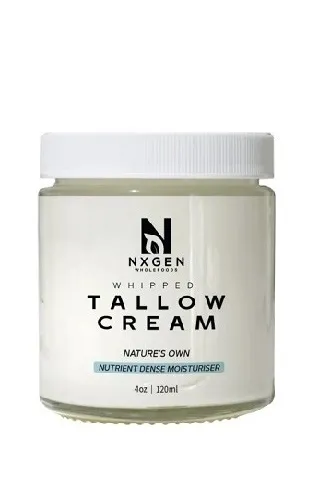
Organic Whipped Tallow Cream 120ml
$34.50Add to cart -
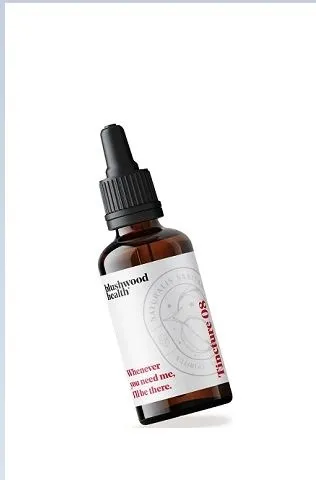
Blushwood Berry Seed Extract EBC-46 Tincture
$120.95Add to cart -
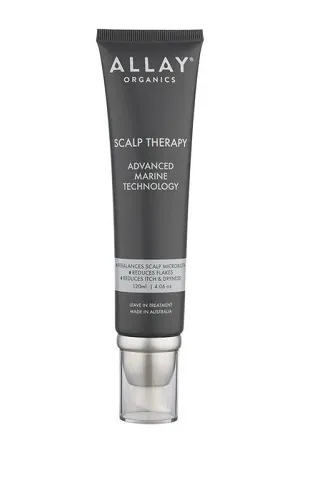
Scalp Therapy Advanced Marine Technology Allay Organics
$48.50Add to cart -
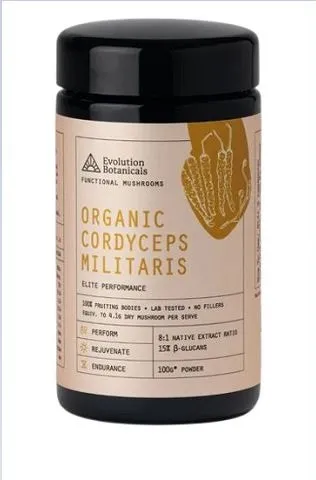
Organic Cordyceps Militaris Evolution Botanicals
$72.99Add to cart -
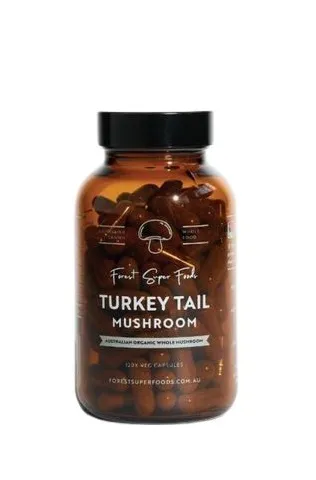
Turkey Tail Mushroom Super Foods
$79.99Add to cart -

Cordyceps Mushroom Forest Superfoods
$89.00Read more
[bmi]
